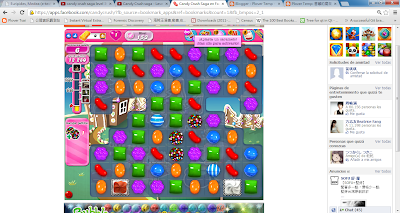例子:
(1) { 1, 2, 3, 4 } returns 4
(2) { 4, 5, 6, 10, 11 } returns 3
(3) { 1, 2, 4, 5, 7, 8 } returns 2
我的想法來自於 DFS 的經典題目:grafixMask
這是演算法教學系列文章:
http://community.topcoder.com/tc?module=Static&d1=tutorials&d2=alg_index
裡面有一篇不錯,雖然大學有教 graph algorithms,可惜當時沒有熱情,
我說的就是這篇:
Introduction to Graphs and Their Data Structures
((現在有熱情的理由也是很瞎,Candy Crush Saga 激起我解決問題的衝動,
數學問題太難,演算法問題可難可易,很適合我解決問題))
總之以 C# 的語言來說,
先把 int[] input 丟到 HashSet<int> numberSet = new HashSet<int>(input),
O(n)。
接著 iterate hash set,把每個整數點 p 當做一個 Node,
Edge 就是 p-1 或是 p+1,這個查詢只要 O(1),因此我們可以建出一個 graph,
space O(n)
((上班說錯更正一下,直接用 linked list 實做 graph 就可以了))
接著 grafixMask 技巧用下去,直接結束。
time complexity O(n)
space complexity O(n)
不過這比起 Candy Crush Saga Level 361,簡直小巫見大巫,
這關有夠機車的。












